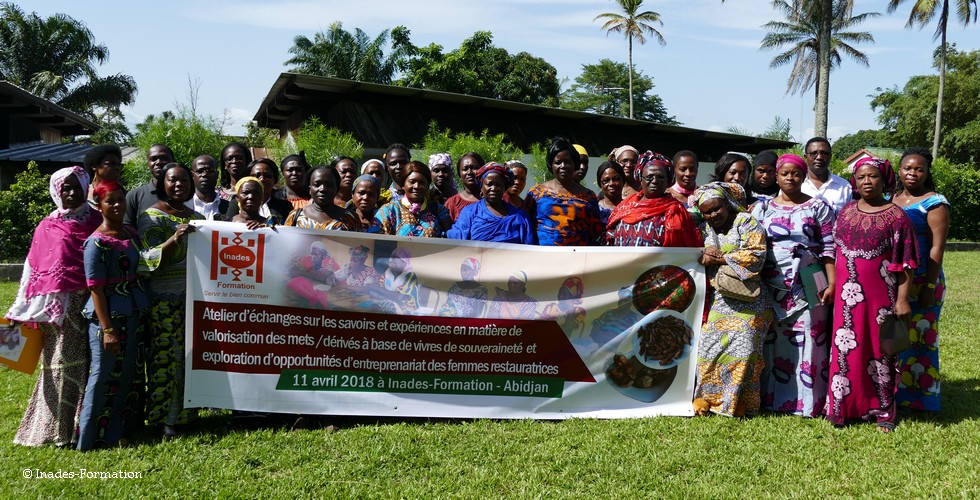To promote food systems based on family farming, a forum was held at the General Secretariat of Inades-Formation on Wednesday, April 11, 2018, for the exchange of knowledge and experience on the promotion of dishes based on sovereignty food and the exploration of entrepreneurial opportunities for women caterers in Côte d’Ivoire.
This forum, organized by the General Secretariat in partnership with Inades-Formation Côte d’Ivoire in the framework of the programme to promote sovereignty food, was attended by some thirty women caterers, processors of sovereignty food such as millet, sorghum, beans/niébé and local chicken. These women came from the communes of Abidjan and other towns in the country, particularly in the north and centre of Côte d’Ivoire, where these foodstuffs are most consumed.
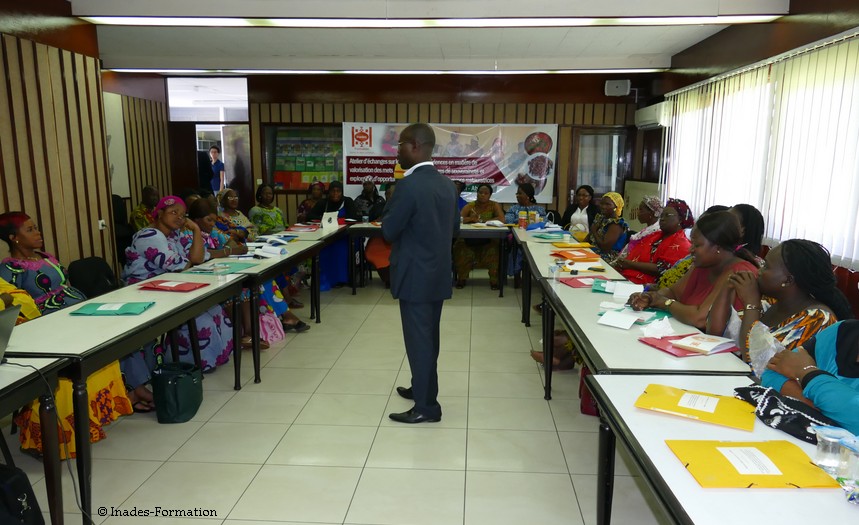
As a reminder, “sovereignty food” is, from a conceptual point of view[1], food crops and livestock and/or harvesting products traditionally dominant in the diet of the local populations of African countries South of the Sahara but which are today losing ground in terms of production and are increasingly less important in the household food basket. The causes of this loss of importance are diverse:
- Gradual discontinuance, by producers, for reasons of arduous work, especially in terms of packaging;
- Changes in consumption patterns due to substitution by other imported or hybrid seed products;
- Decrease in support for the development of the family agricultural sector and food exchanges between urban and rural areas, the emphasis being placed on policies to promote export monocultures at the expense of traditional crops.
Yet, these cultures, true sovereignty food, have great virtues – globally recognized nutritional, therapeutic and cultural / traditional values (used especially for traditional rites or ceremonies, such as weddings, baptisms, funerals, etc.). Finally, they are resilient food crops (poor soils, climate change, etc.) and family farmers, especially women, are the repositories of a huge amount of knowledge and know-how accumulated on these products in terms of farming practices enriched from generation to generation, recipes for cooking “local dishes” and the preservation of agro-biodiversity.
Indeed, the concept of “sovereignty food” derives from these characteristics of resilience, knowledge and know-how accumulated on seeds, cultivation techniques and recipes for cooking. Thus, repositioning “sovereignty food” at the heart of the food systems of African countries will make it possible, among other things:
- To consolidate and amplify the intellectual and cultural heritage of local populations (local knowledge, know-how and life skills) in terms of cultural practices and recipes for cooking “local dishes” enriched and transmitted from generation to generation, which constitute important levers of sovereignty in food;
- To reweave the decisive links between cities and the countryside, to support the emergence of a social and solidarity-based economy (city-country solidarity), as an engine for improving the system for serving local and urban markets and to all actors involved in the production, processing and distribution of food obtained with dignity from their labour;
- To stimulate awareness of the strategic role of sovereignty foodstuffs in local and national food systems and to draw the attention of decision-makers and the general public to the threats of disappearance of local food products and the current opportunities.
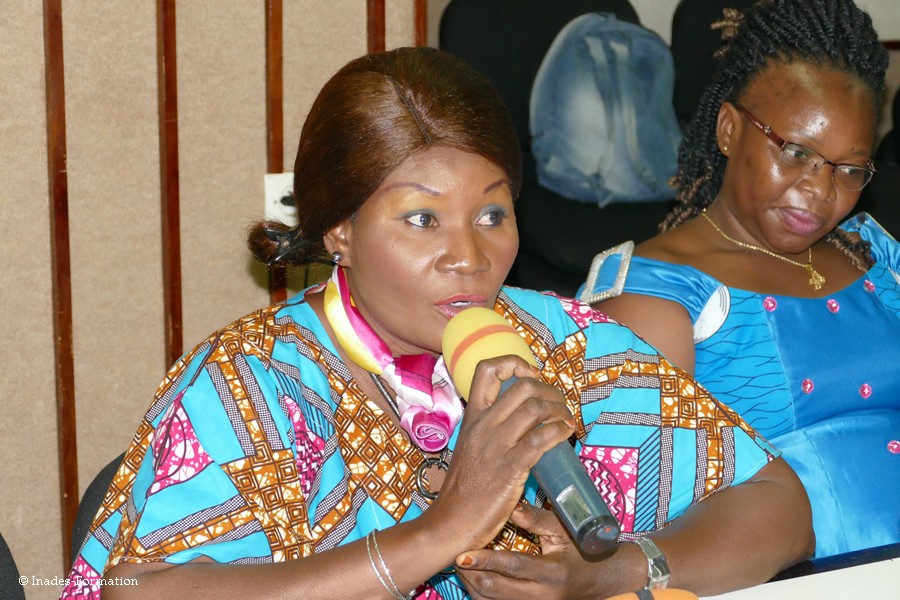
The forum was articulated around the following objectives:
Linking women sovereignty food caterers and analysing together the stakes and challenges of the development of sovereignty food services from the perspective of the “concept of Proximity Catering;”
- Collect practices and knowledge related to sovereignty food;
- Stimulate initiatives to network women caterers of sovereignty food in Abidjan.
- The participants thus discussed the importance of enhancing sovereignty food services.
- Emphasis was placed on positioning the principle of food sovereignty, promoting foods recognized for their nutritional, therapeutic and cultural values, and the opportunities offered for entrepreneurship and empowerment of women.
The participants, who already know the values of these sovereignty foods, confirmed their adherence to this vision and thanked Inades-Formation for the initiative to promote these ancestral agricultural products.
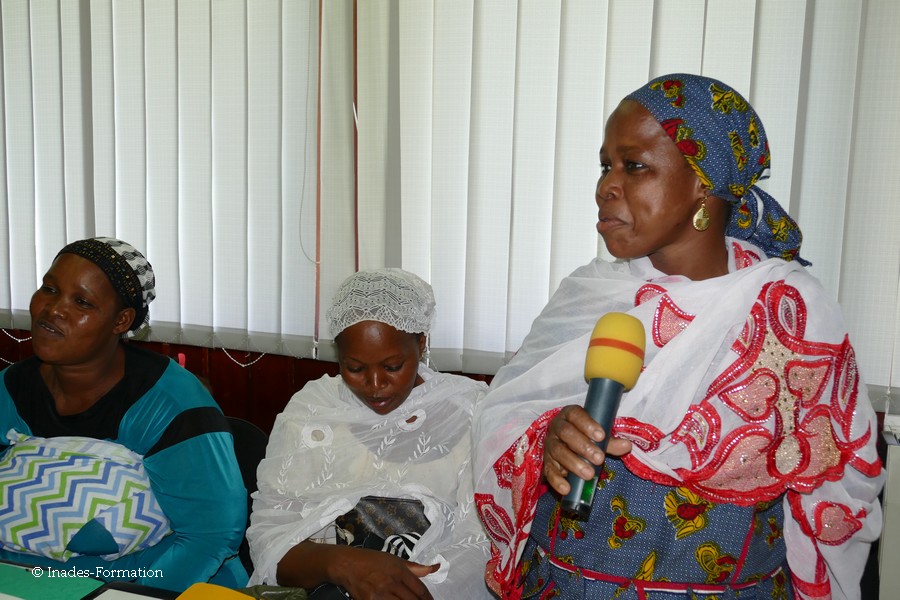
Sovereignty Food, Products Appreciated by the Population but Insufficiently Promoted.
Women caterers participating in the forum recognized the interest that the population has in the dishes derived from sovereignty food and the potential market they constitute.
They believe that all segments of the population like to consume them. However, to regain a place of choice in the populations’ dietary habits, products should be promoted through better presentation of dishes, varied menus, modernization of sales stalls, sustained communication, etc. This requires women to be creative, innovative and determined.
They shared their experiences on the difficulties encountered in the carrying out of their sovereignty food-based catering activities at the organizational, financial, material, product availability, product prices, product quality and customer levels. They identified their needs to consolidate and promote their activities.
Thus, issues of hygiene, presentation, treatment of products have been identified. This was an opportunity for them to give advice to each other for the improvement of their commercial activity.
They expressed the need for networking between women caterers in order to guarantee the availability and quality of sovereignty food, exchange operational information and promote solidarity in their profession. They also identified various communication actions to promote sovereignty food.
This was also an opportunity to talk to the participants about the requirements in terms of managing sovereignty food orders to enable them to be more competitive in conquering new markets.
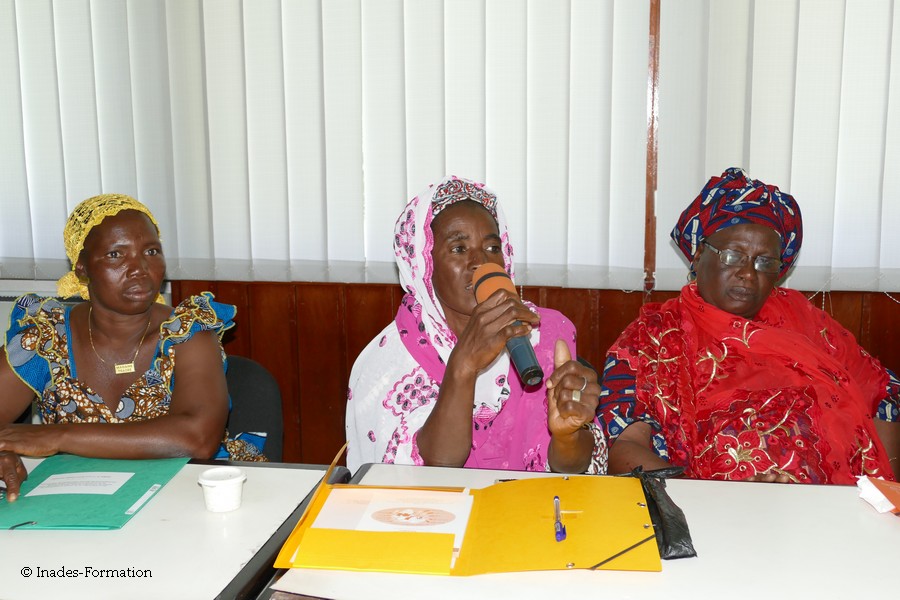
New Dishes Identified
This forum for women identified 16 new local dishes, often created or invented by the caterers themselves based on modern menus made from other cereals, vegetables or others.
Thus, the participants could realize the diversity of the proposals and the infinite possibilities to create new dishes, possibilities they had already seen through the samples of dishes and drinks based on the sovereignty food they had brought.
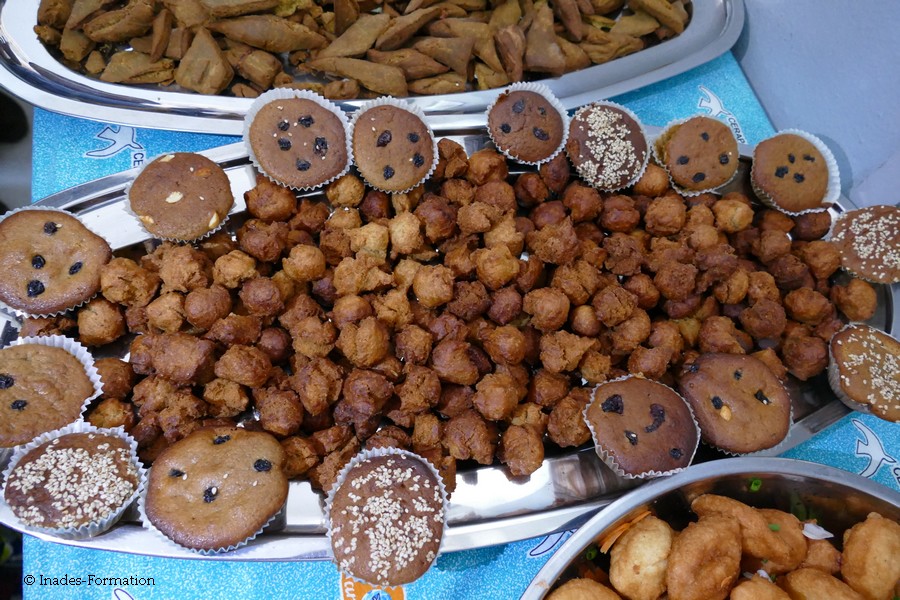
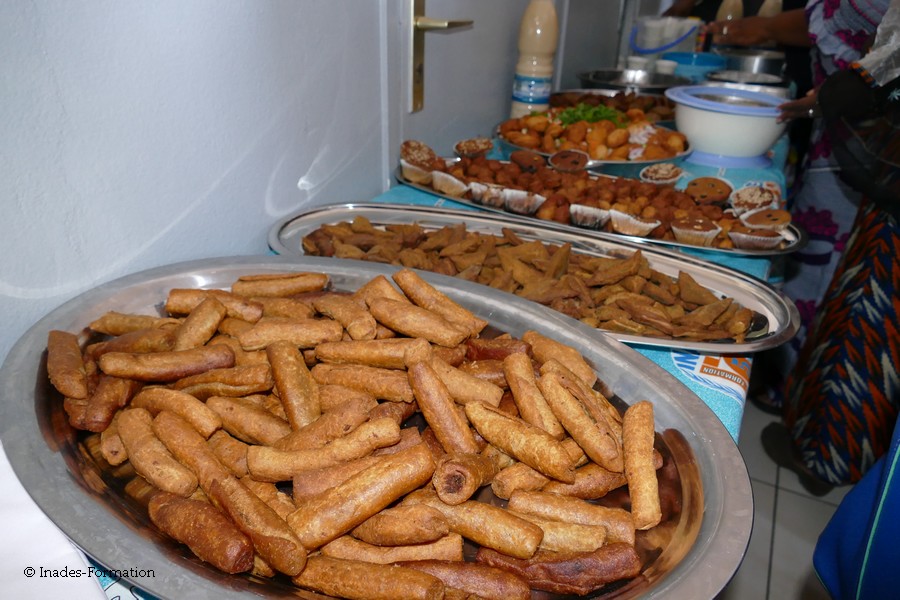
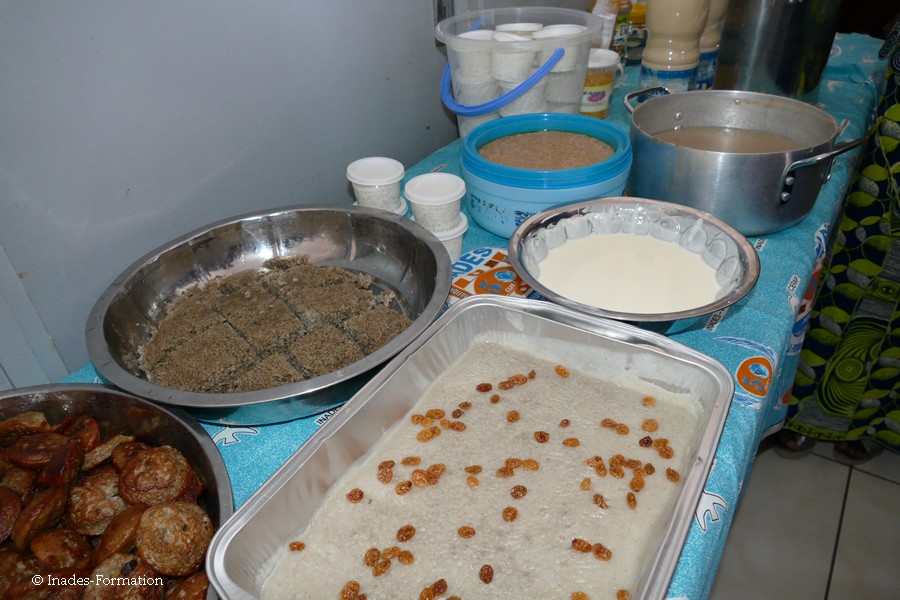
Women involved for further exchanges and collective learning
The forum closed with enthusiasm from participants and a commitment to deepen issues related to organizational aspects, the quality of food and beverage services, communication and networking.
